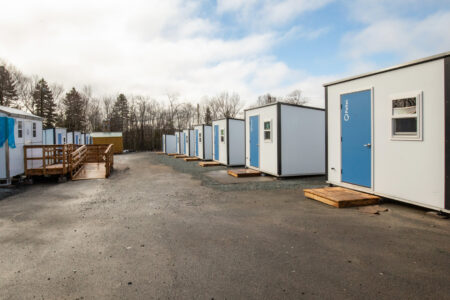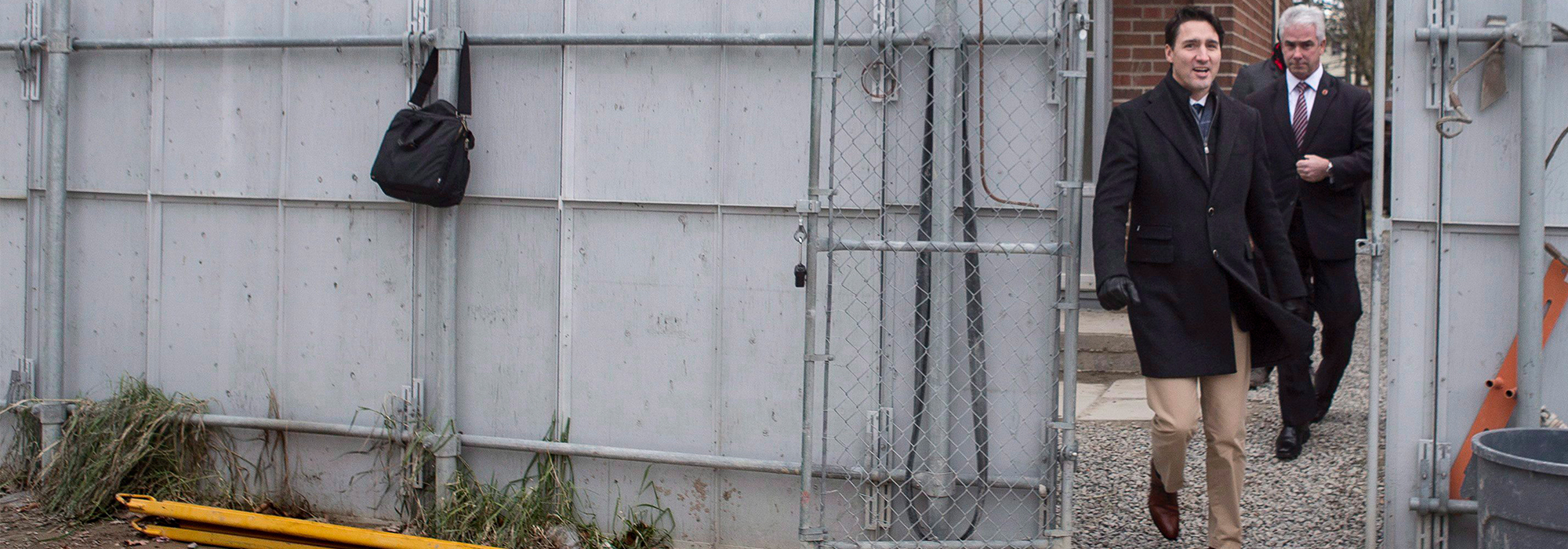
Last week, Premier Doug Ford’s newly elected Ontario government announced that a 3 percent increase to social assistance set to take effect in the fall would be slashed in half. He also cancelled Ontario’s basic income pilot project, which began in April 2017 and was scheduled to last three years. Stakeholders have advocated for a basic income in Canada as a way to address the inadequacies of social assistance, and the federal government had its eyes on the pilot project in Ontario to produce important data. The announcement by the Ford administration raises questions about whether it’s time for the federal government to play a larger role.
There is a recent precedent for federal leadership on social policy, which for some time has been largely the responsibility of provincial and municipal governments. Not long ago, under Stephen Harper, housing and homelessness were not viewed as federal issues. Today, however, we have a National Housing Strategy, which has committed $40 billion over 10 years to create safe, affordable housing, address homelessness, and develop a housing benefit.
There has also been a shift in policies on poverty. During the past decade or so, when cities, provinces and territories developed poverty reduction strategies, the federal government showed little leadership. But in 2016, Prime Minister Trudeau called on Jean-Yves Duclos, Minister of Families, Children, and Social Development, to develop Canada’s first national poverty reduction strategy.
Across Canada, social assistance rates are vastly inadequate to address the extent of poverty and income insecurity. Most households that receive social assistance have incomes below 50 percent of median incomes (after taxes). In 2012, 70 percent of households relying on social assistance were food insecure. (National data related to food insecurity have not been made available by Statistics Canada since 2012.)
There is currently no official federal mechanism to measure poverty in Canada. Many antipoverty groups have called for the reinstatement of the National Council of Welfare (NCW), or the establishment of a similar body, as part of the upcoming poverty reduction strategy.
In existence since 1969, the NCW was an arm’s length group that advised the federal government on issue relating to poverty. With members from across the country, it included a process that allowed low-income people to express their opinions in national decision-making. It also compiled statistics on welfare and poverty and created evidence-based social policy resources. It was cut by the Harper government in 2012. There is no comparable organization today, and civil society groups do not have the resources, access or authority to carry out the NCW’s important mandate.
It is time for the federal government to step up when it comes to the inadequacies of social assistance in Canada. At the very least, it could immediately reinstate the National Council of Welfare’s important mandate, especially since the federal government is responsible for a large portion of provincial funding for social assistance through the Canada Social Transfer (CST).
Stakeholders across the country have been calling for increased accountability and collaboration with regard to the Canada Social Transfer. In 2013, The Canadian Association of Social Workers, echoing advocates for human rights and equitable public policy in Canada, called for the government to “introduce conditions and standards associated with the CST to improve accountability and to ensure that Canadians, regardless of location, have equal access to adequate social programming.”
The Ford government’s cuts to social assistance increases come at a time when Ontario is asking for more federal support to cover the cost of the asylum seekers being taken in by the province. At a recent emergency meeting of the Standing Committee on Citizenship and Immigration, Ontario Minister of Children, Community and Social Services Lisa MacLeod requested $200 million to cover the those costs. Of that amount, $90 million is for social assistance costs, according to MacLeod. But as the Ontario government has pledged to “develop and announce a sustainable Social Assistance program” within 100 days, it seems unlikely that this figure has been properly costed out.
This is the problem with federal-provincial transfers: lack of accountability and the lack of a formal breakdown of where the funds will land. Indeed, in his testimony before the House of Commons Standing Committee on Citizenship and Immigration, Parliamentary Secretary to the Minister of Families, Children and Social Development Adam Vaughan called out the previous federal Conservative government’s lack of accountability regarding funding transfers.
It’s clear that social assistance is in need of reform, as antipoverty groups have been stating for years. Innovative policies and targeted funding can make a difference, but all levels of government need to commit to making the reform happen.
Photo: Canadian Prime Minister Justin Trudeau visits a housing development in Toronto’s Lawrence Heights neighbourhood ahead of announcing his government’s housing strategy in November 2017. The Canadian Press, by Chris Young.
Do you have something to say about the article you just read? Be part of the Policy Options discussion, and send in your own submission. Here is a link on how to do it. | Souhaitez-vous réagir à cet article ? Joignez-vous aux débats d’Options politiques et soumettez-nous votre texte en suivant ces directives.









